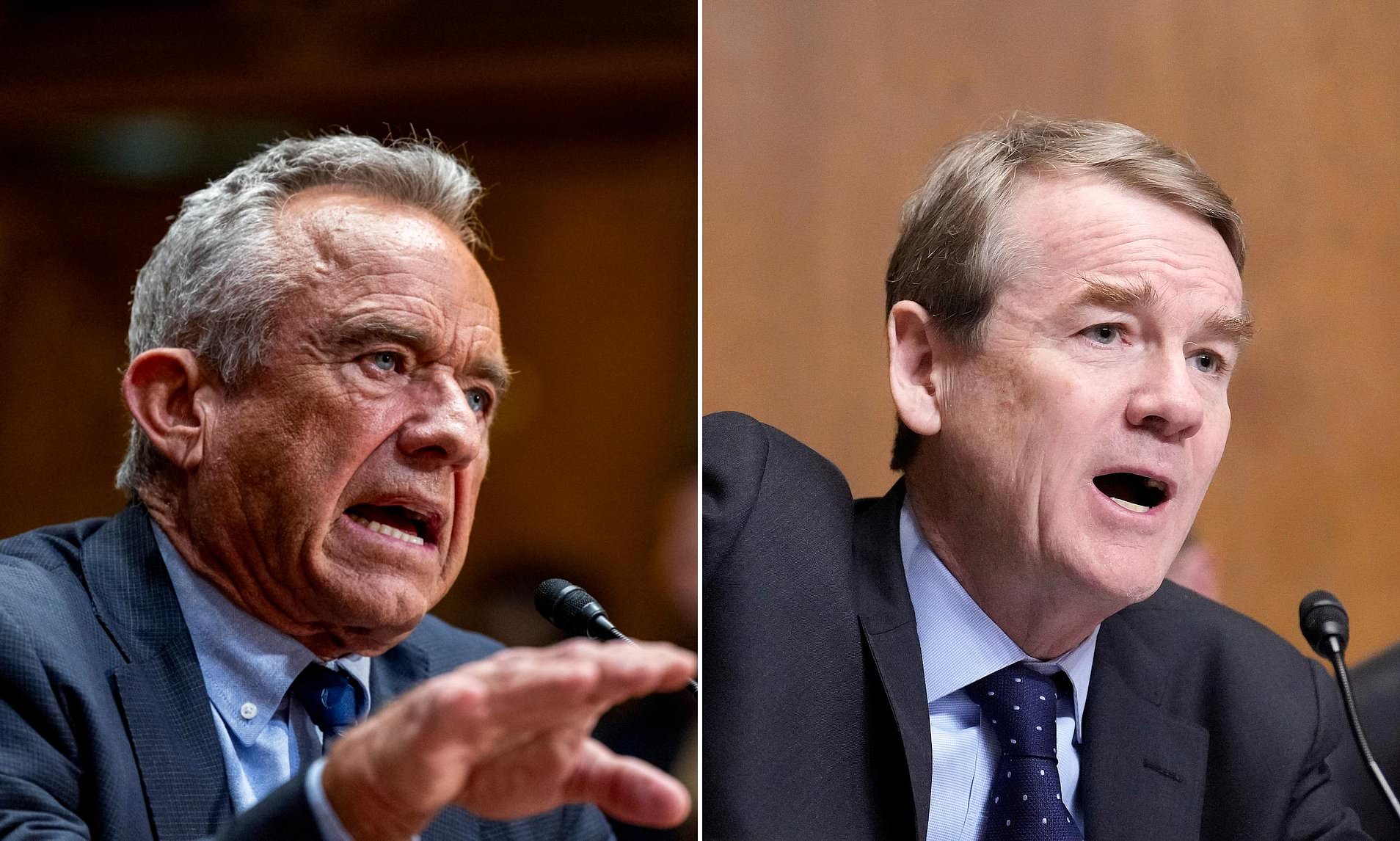RFK Jr Unveils Vaccine Plan After First State Bans School Mandates

The CDC's Stance on Childhood Vaccinations Amid Rising State-Level Opposition
Robert F. Kennedy Jr., the newly appointed Secretary of Health and Human Services (HHS), has made it clear that the Centers for Disease Control and Prevention (CDC) will not be changing its guidelines on childhood vaccinations, despite growing opposition from states that have moved to eliminate vaccine mandates. This statement came during a Senate hearing with Senator Michael Bennet, a Democrat from Colorado, where Kennedy emphasized that he does not anticipate any alterations to the CDC’s recommended schedule for vaccines like the measles, mumps, and rubella (MMR) shots.
Kennedy also expressed support for parental choice, stating that “parents should be free” to decide whether or not to vaccinate their children. When asked if parents who want to vaccinate would still be able to do so, he responded, “I assume they will be,” though he provided no further details on how this would be enforced.
This statement comes at a time when several states are taking bold steps to dismantle vaccination requirements. For instance, Florida’s Surgeon General, Dr. Joseph Ladapo, recently announced that the state is eliminating all vaccine requirements for schoolchildren, reversing policies that public health experts argue have saved millions of lives. Ladapo, known for his skepticism of vaccines and opposition to mandates, claimed that “every last one of them is wrong” and criticized the idea of government control over what parents can do with their children’s health.
Idaho became the first state to broadly outlaw vaccine mandates in April, prohibiting schools, businesses, and government entities from requiring any vaccinations for employment, services, or education. Over a dozen other states are considering similar proposals, which many public health officials fear could lead to a resurgence of preventable diseases.
A Polarizing Response from Both Sides
Kennedy’s statements have drawn criticism from both political parties. Senator Bill Cassidy, a Republican from Louisiana and a physician, accused Kennedy of creating confusion among doctors and patients about vaccine access. In response, Kennedy denied the claim, asserting that he is not restricting access to vaccines and that any confusion is not his responsibility.
Despite the controversy, Kennedy has stated that his plans for his tenure do not include implementing measures that would limit access to childhood vaccinations. He has reiterated that parents should have the right to make decisions about their children’s health without government interference.
At the same time, some Pacific Coast states are forming an alliance to counter what they see as dangerous policies that undermine the scientific consensus on vaccines. These states aim to serve as a bulwark against legislation that could weaken long-standing public health protections.
Vaccine Requirements Vary Across States
The landscape of vaccine requirements for schoolchildren varies widely across the U.S. Nearly every state requires students to be vaccinated against core diseases such as measles, mumps, rubella, diphtheria, tetanus, pertussis, polio, varicella, and hepatitis B before enrolling in public schools. However, additional vaccines—such as those for hepatitis A, human papillomavirus (HPV), rotavirus, and influenza—are often recommended but not always required.
States also differ in their policies regarding exemptions. Most allow medical exemptions for children with valid health reasons, such as a weakened immune system or allergies to vaccine ingredients. Religious and philosophical exemptions are also permitted in many states, though the process for obtaining these varies significantly. Some require only a simple form, while others demand a notarized letter from a religious leader.
In contrast, states like California, New York, Maine, Connecticut, and West Virginia have eliminated both religious and philosophical exemptions, allowing only medical exemptions. Meanwhile, lawmakers in over 15 states are introducing bills to expand religious exemptions, create vaccine injury databases, and regulate medical advice related to immunizations.
Concerns About Access and Safety
As vaccine hesitancy grows, concerns about access to routine immunizations have increased. Pediatricians across the country report that some parents are now asking whether their newborns will still be able to receive vaccines. This anxiety is particularly acute among families relying on Medicaid, which covers 40% of American children.
While the CDC continues to emphasize that no one will be denied access to licensed vaccines, there are growing fears that future changes to vaccine policy could make it harder for families to obtain necessary immunizations. The Advisory Committee on Immunization Practices (ACIP), which advises the CDC on vaccine recommendations, has recently expanded its membership to include individuals who have raised concerns about vaccine safety and efficacy.
The Future of Vaccine Policy
The ACIP’s upcoming agenda includes discussions on vaccines for hepatitis B, measles, mumps, rubella, varicella, and respiratory syncytial virus (RSV). While the MMR vaccine has been considered safe and effective since the 1960s, the newer vaccines for hepatitis B and varicella were introduced in the 1980s and 1990s, respectively. The recent approval of the RSV vaccine in 2023 has added another layer of complexity to the debate.
Amid these developments, the firing of CDC Director Susan Monarez has sparked controversy. She was removed after resisting pressure from RFK Jr. and his allies to change vaccine policy and terminate senior staff. Three top officials resigned in protest, alleging that they were forced to recommend vaccines without a scientific basis, which they feared would endanger public health.
RFK Jr. has dismissed claims about the circumstances of her removal, insisting that “she’s lying.” He has also called for the dismissal of certain CDC staff, claiming that the U.S. is the “sickest people in the world.”
As vaccine policy continues to evolve, the balance between individual rights and public health remains a contentious issue, with significant implications for the future of immunization efforts in the United States.

Comments
Post a Comment